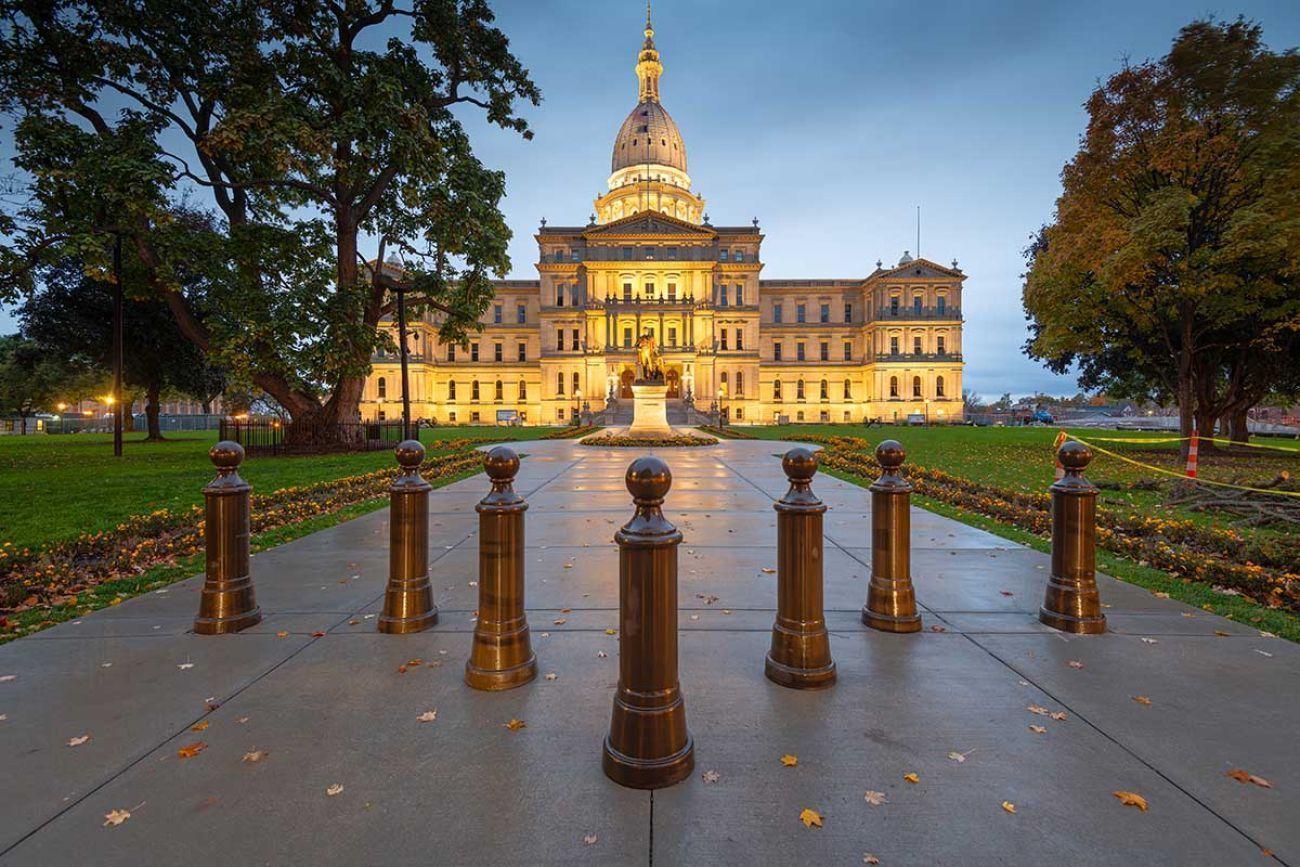Michigan inflation relief checks: Why GOP is fighting Whitmer rebate plan

- Michigan Senate poised to vote on tax relief plan for lower-income residents, seniors
- Whitmer, Dems want $180 rebate checks, need help from Republicans for them to be issued this year
- Republicans could block rebates and seek permanent income tax cuts
March 1: Michigan lawmakers send Whitmer tax cuts; $180 payments are dead
LANSING — Democratic Gov. Gretchen Whitmer and legislative Republicans are at odds again over tax relief legislation despite both sides saying they want to help Michigan residents cope with inflation.
The dynamics are considerably different from last year, when Whitmer vetoed two broad GOP tax cut proposals. Now, Democrats control the House and Senate, but their narrow two-seat majorities means passing bills remains a challenge.
The Senate is expected to take final votes Tuesday on legislation that would send rebate checks to all Michigan tax filers, expand the Earned Income Tax Credit for lower-income workers and repeal the so-called retirement tax on pension income.
Related:
- Michigan inflation relief checks may be in jeopardy, even as tax cut passes
- Michigan $180 inflation relief checks 2023: what to know about Whitmer's plan
- What Michigan Gov. Gretchen Whitmer wants to fund in $79B budget
Whitmer, who is backs the legislation, touts the plan as “the largest tax break for working families and seniors in Michigan in decades.” Republicans contend the plan would hurt taxpayers by blocking permanent tax relief.
Confused? Here's what you need to know:
Rebate checks vs. income tax rate cut
The Democratic plan would send $180 rebate checks to each Michigan tax filer, or $90 per married person. Doing so would cost the state about $800 million and take a bite out of what remains a nearly $9 billion state surplus.
Republicans generally like the idea of returning money to taxpayers, but they're lining up to oppose Whitmer's plan because it would undo their preferred form of tax relief: An across-the-board income tax rate cut.
As part of their 2015 law that raised fuel taxes to pay for road repairs, GOP lawmakers included a provision that requires the state to cut its income tax rate in any year that revenue growth greatly outpaces inflation.
While state officials haven't "closed the books" on the 2022 fiscal year, a pandemic-related surge in state tax collections appears likely to trigger the automatic rollback. It could cut the individual income tax rate from 4.25 percent to as low as 4.04 percent, costing the state about $700 million per year in future collections, according to nonpartisan fiscal analysts.
Democrats aren't trying to repeal that law, but the $180 rebate checks would prevent any potential income tax cut by diverting money from the general fund and thus avoiding the trigger.
Can Republicans block the rebate checks?
While they are outnumbered in both chambers, Senate Republicans can effectively block the rebate checks — and preserve the possible income tax rate cut — if enough members refuse to vote for "immediate effect."
The legislation includes language specifying that the $180 rebate checks won’t happen unless the new law takes effect by April 18.
But unless Senate Democrats change longstanding chamber rules, that won't happen without some GOP support because they do not have the two-thirds super majority that the Michigan Constitution requires to make a bill take effect immediately.
There are currently 20 Democrats and 18 Republicans in the Senate.
If 12 or more Republicans vote against immediate effect, they’ll be able to block the one-time rebates, and the $800 million those checks would have cost the state would instead remain destined for the general fund, where it would likely trigger the automatic income tax rate rollback.
"It’ll be hard to find five Republicans who are willing to give this immediate effect when it guarantees stopping an income tax cut that all Michiganders would benefit from," Senate GOP spokesperson Jeff Wiggins told Bridge Michigan on Monday.
Why do Democrats prefer the rebate check?
Democrats are championing the $180 rebates as a way to provide immediate relief to Michiganders.
Checks could go out as early as this spring, as opposed to an income tax rate rollback that would not benefit most people until they file their income taxes in 2024.
While the state has a large surplus, Whitmer has previously opposed permanent income tax rate cuts because they would impact the budget every year, limiting the state's ability to pay for services in the event of a recession or other unforeseen circumstance that forces belt tightening.
There's also a fairness argument: Democrats say the rebate checks would benefit all taxpayers equally, regardless of their income levels.
By comparison, cutting the individual income tax rate would benefit the state’s wealthiest residents the most on a dollar-to-dollar basis. A billionaire could save hundreds of thousands of dollars each year, while a $30,000 earner would only save $68 annually, said state Rep. Samantha Steckloff, D-Farmington Hills.
Under a permanent rate reduction, that $30,000 earner could eventually save more than they would from the $180 rebate check, however. It would take three years for that to happen.
What about the ‘corporate handouts’ debate?
In addition to the tax relief debate, the Democratic legislation faced opposition in the House because it would use up to $500 million a year in corporate income tax revenue for business incentives through what is called the Strategic Outreach and Attraction Reserve Fund.
State Rep. Dylan Wegela of Garden City was the only Democrat to vote against the legislation last week in the lower chamber, doing so despite what he said was strong support for other provisions in the bill.
"Corporate handouts don't work" and don't belong in the legislation, Wegela said in a statement after he broke party ranks.
Whitmer says that it's important to create a "sustainable" funding source for a program that has helped the state lure major economic development projects, including a planned $3.5 billion electric vehicle factory in Marshall that Ford announced Monday. Republicans helped create the SOAR fund in 2021 but have argued the legislation could eliminate legislative oversight they built in.
See what new members are saying about why they donated to Bridge Michigan:
- “In order for this information to be accurate and unbiased it must be underwritten by its readers, not by special interests.” - Larry S.
- “Not many other media sources report on the topics Bridge does.” - Susan B.
- “Your journalism is outstanding and rare these days.” - Mark S.
If you want to ensure the future of nonpartisan, nonprofit Michigan journalism, please become a member today. You, too, will be asked why you donated and maybe we'll feature your quote next time!




